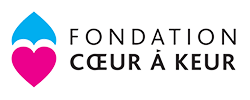- fondationcoeurakeur@gmail.com
- Cotonou, Camp Guezo, Rue 5100
Children and disability in Benin: realities, challenges and perspectives
In Benin, thousands of children live with disabilities and face social, economic and cultural challenges. Despite their potential and talents, these children are still all too often victims of stigmatization, exclusion and limited access to essential services such as education and health. While disability remains a sensitive issue in many localities, Benin is striving to put in place initiatives to ensure greater inclusion and protection for the children concerned.
According to UNICEF data (2023), around 15% of Beninese children live with a disability, whether physical, sensory, mental or cognitive. Of these, over 70% have no access to appropriate education. What’s more, approximately 40% live in very precarious conditions. The most common disabilities in Benin include visual and hearing impairments, motor disorders, often linked to diseases such as polio, and cognitive or mental disorders, sometimes caused by prenatal or perinatal complications.
The legal framework: support that’s still fragile
Benin has signed and ratified several international instruments, including the United Nations Convention on the Rights of Persons with Disabilities in 2008. At national level, Law 2017-06 of September 29, 2017 on the protection and promotion of the rights of people with disabilities is a major step forward.
This law guarantees the right to education for all, with specific provisions for disabled children, priority and free access to healthcare, and the prohibition of all forms of discrimination. Despite this progress, implementation remains problematic, due to a lack of resources and awareness.
Words of hope …
Marie, mother of Chantal, a 10-year-old girl with cerebral palsy, says her daughter is very intelligent, but had to leave school because the teachers didn’t know how to look after her. She had to teach herself how to teach her at home.
Similarly, Jacques, head of an NGO in Cotonou, explains that his organization has launched a program to train teachers in inclusive education. “There’s still a lot to be done, but the results are encouraging. Disabled children deserve an equal place in our schools,” he says.
Day-to-day challenges: multiple obstacles
Among other challenges, stigmatization and cultural beliefs. In some regions, disability is still perceived as a curse or divine punishment, leading some families to hide their children.
Children with disabilities have limited access to adapted infrastructures, as schools, health centers and public places often lack access ramps, adapted toilets and other essential facilities.
The other reality is the lack of specialists. Benin suffers from a crying shortage of specialized professionals, such as speech therapists, occupational therapists and specialized educators.
Specialist recommendations
According to Marcelle GANSOU, a specialist in the care of disabled children, “it is crucial to strengthen early detection of disabilities and to train more health professionals. Prompt care can change the course of a child’s life”.
In addition, sociologist Parfait DEGAN asserts that “community awareness is the key. As long as mentalities don’t change, policies will remain ineffective”. The disabled child in Benin must no longer be seen as a burden, but as a full-fledged member of society.
Although the challenges are still many, the initiatives underway offer grounds for hope. Investing in inclusive education, raising community awareness and strengthening the legal framework are all levers to guarantee every child a dignified and promising future. With collective mobilization, Benin can become a model in Africa for the inclusion of disabled children.

